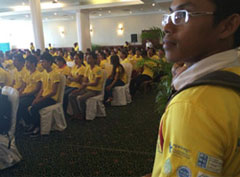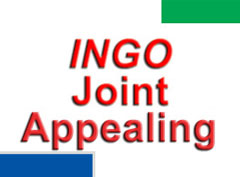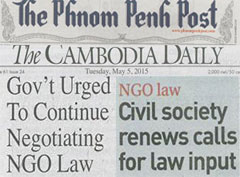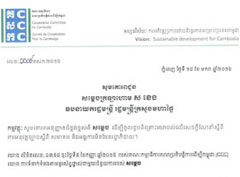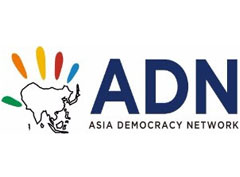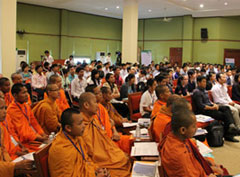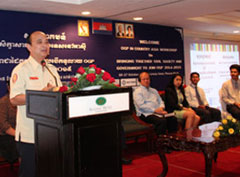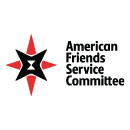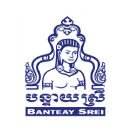Senior Representatives of CSOs Meet to Promote Effective NGO Governance and Good Internal Relationships
by Khim Sambo Rothana, Communications Office
Phnom Penh (October 16-17, 2014) – Around 70 senior representatives who are board members and management staff from local and international NGOs working in Cambodia today meet and discuss at a two-day workshop on “Promoting Effective NGO Governance and Good Relationships between Boards and Executive Directors” at Cambodia-Korea Cooperation Center (CKCC), Royal University of Phnom Penh.
Co-organized by a group of five NGOs including Southeast Asia Development Program (SADP), Cooperation Committee for Cambodia (CCC), Action Aid Cambodia (AAC), Cord, and Danmission, the workshop aims:
- to promote common understanding of governance among civil society organizations – this will include promoting understanding of the collective nature of governance and exploring the differences between management and governance;
- to provide opportunities for participants to reflect, feedback, and discuss the roles and responsibilities of governing boards;
- to identify and document tips or good practices for NGO governance and as well as action plans to improve NGO governance in Cambodia;
- to assist GPP applicant NGOs to prepare submissions to NGO GPP with regards to the functionality of the boards.
This is the first workshop initiated by this group of NGOs to address some serious challenges of governance for civil society organizations in Cambodia.
In his opening remark, Dr Sok Thim, Chairperson of CCC Executive Committee, said that after first election in 1993, some NGOs and associations had poor understanding and resource to absorb hug amount of money to operate in Cambodia.
"However, it becomes our experience and foundation to build up our work from this twenty years working. And now, it is time to share all our experience and capacity to young generation to have enough capacity for development." he added.
Mr Seoung Typo, Research and Learning Manager of CCC.
Mr Seoung Typo, Research and Learning Manager of CCC, said that senior members and board of directors of all CSOs would understand more on good governance and management from this important workshop. “There is also a session in which participants can reflect and share good behaviors to each others in order to improve their performance.” he added.
“CSOs are important development partners of the government and always demand the government to improve or strengthen good governance. So, CSOs themselves need to take this opportunity to reflect their own governance as well.” Mr Typo said.
Mr Graeme Brown, Coordinator and Country Representative of Southeast Asia Development Program (SADP), said that he, as a donor partner in Cambodia, was very happy to see all CSOs met and discussed on this important issue. “There is still small amount of NGOs in Cambodia that do not have good governance at their work. For example, a CEO of a NGO has a wife or relatives working as CFO or in finance unit which allow them to do corruption. This is very harmful and leads that NGO to poor governance.” he emphasized.
“It is very important to have advisory boards in a NGO to effectively perform their duties with transparency when a problem occurs. Being a donor, we require those NGOs to have good governance or check and balance system to ensure that there is no corruption or problem before we donate or support them.” Mr Graeme Brown said.
For more documents and photos of this workshop, please follow THIS LINK
For more information, please contact:
Mr Soeung Typo
Research and Learning Manager of CCC
Tel: 012 988 802
Email: typo.soeung(a)ccc-cambodia.org
Other Latest News
Moving against Corruption & Impunity
Phnom Penh (23 November 2014) – More than 500 Hundreds of people gathered in Phnom Penh to celebrate the International Day to End Impunity. Wearing a yellow T-Shirt which written on the back “iMove against Corruption & Impunity for Poverty Reduction”
INGO Joint Appealing
សេចក្តីអំពាវនាវរបស់អង្គការអន្តរជាតិគោរពជូន ឯកឧត្តម ប្រាក់ សុខុន ទេសរដ្ឋមន្រ្តី រដ្ឋមន្រ្តីក្រងសួងការបរទេស និងសហប្រតិបត្តិការកម្ពុជា។ INGO appealed to H.E Prak Sokhonn, Senior Minister and Minister of Foreign Affairs and International Cooperation Royal Government of the Kingdom of Cambodia.
Civil Society urges the Royal Government of Cambodia to STOP and CONSULT on LANGO
Around 300 NGOs organized a last-ditch to bring back negotiation table with the government of over a draft debatable NGO Law, which the premiere hopes to have the National Assembly passed as early as this month.
Cooperation Committee for Cambodia (CCC) placed 3rd Letter to Interior
កាលពីថ្ងៃទី ១៤ ខែ មករា ឆ្នាំ២០១៦ គណៈកម្មាធិការសហប្រតិបត្តិការដើម្បីកម្ពុជា (CCC) បានដាក់លិខិតផ្លូវការទី៣ជូនទៅក្រសួងមហាផ្ទៃ សូមចូលជួប សម្តេចក្រឡាហោម ស ខេង ឧបនាយករដ្ឋមន្ត្រី រដ្ឋមន្ត្រីក្រសួងមហាផ្ទៃដើម្បីចូលជួបពិគ្រោះយោបល់និងធ្វើបច្ចុប្បន្នភាពរបស់អង្គការសង្គមស៊ីវិលនិងបញ្ហាប្រឈមក្នុងឆ្នាំ២០១៥ . . .
Statement of the International Conference on the 25th Anniversary of the 1991 Paris Peace Accords on Cambodia
We, the participants in the International Conference on the 25th Anniversary of the 1991 Paris Peace Accords on Cambodia (“the Paris Peace Agreements”), recall the importance of the obligations contained in the 1991 Paris Peace Agreements, which brought an end to decades of conflict and civil war in Cambodia, and laid the framework for a prosperous and peaceful future, based on human rights, participatory democracy, and the rule of law.
Youth Conference on Policy Development and Open Government Partnership (OGP)
Phnom Penh (23 December 2014) - We, 200 representatives from Youth Group, monks, and Civil Society Organizations, attended the conference on Open Government Partnership (OGP) today
Representatives from Government and CSOs Meet, Discuss on Open Government Partnership (OGP)
Phnom Penh (October 16-17, 2014) –Around 150 senior representatives from Indonesia, the Philippines, Vietnam, and as well as Cambodia are attending the two-day workshop on Open Government Partnership which focuses on the following objectives . . .


